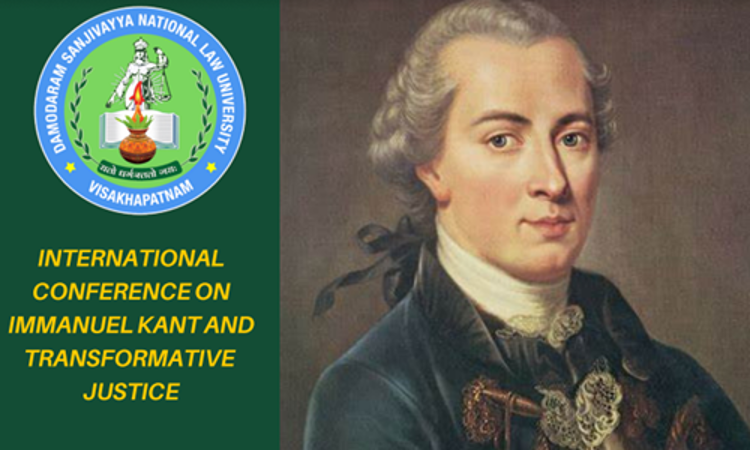Call For Paper: Conference On Immanuel Kant And Transformative Justice; DSNLU
Manav Malhotra
9 Jun 2019 11:11 AM IST

International Conference on Immanuel kant and Transformative Justice is organized by Damodaram Sanjivayya National Law University, Nyayaprastha, Sabbavaram, Visakhapatnam, Andhra Pradesh, India. The Conference is unequivocally the first of its kind in India, relating to the work of Kant.
Who can apply?
- This two-day conference invites participants from across nations and disciplines, to brainstorm on Kant's work, thought and philosophy.
- Constitutional Morality and Kantian Justice: The concept of the Constitution is not an idea of positive law, but a Vernunftidee [an idea of reason], that is, it is not subject to written law, or in Kant's terms, empirical (or statutory) or positive law.
- Science, Technology and Kant's Epistemology: Kant's pure rational cognition that is generated from concepts with metaphysics, contends that science requires a metaphysics of nature. The use of technology is permissible only when it finds its place in the light of culture and territory. Kant believed that philosophy is the "narrow gate" that connects to the world at large.
- Kant And Nature: An organized product of nature is that in which all the parts are mutual ends and means. Kant advocated Doctrine of Virtue that one should not be cruel to animals and destroy the flora. Humans have direct duties only to themselves and other human beings. Kant has also emphasized the integral role that Ethics and Morality play on Human Determination.
- Kant And Personal Justice: Considering a person as an object to satisfy the appetite of a person is a degradation of human nature. Immanuel Kant in his metaphysics of morals came out with a theory of property rights. His assertions on the Universal principle of right led to discussions on the property rights of individuals.
- Kant And Criminal Justice: Better the whole people perish than injustice be done. Kant states that guilt is the necessary condition for the infliction of punishment. He also added that the punishment of the innocent is conceptual and moral pathology. It is largely to avoid such a punishment that Kant inveighs against private revenge, vigilantism, war, and any other activity, which allows a disputant to judge his own case and punish according to his own biased decision.
- Kant And International Relations: Kant is hailed as the greatest of all theorists in the field of International Relations (IR), his theories provide a lasting effect in the understanding of IR in the modern context.
Themes and Sub-Themes:
Submission Guidelines
- The Research Papers shall have a minimum of 3000 to maximum of 6000 words.
- Co-Authorship is allowed. There can be a maximum of 2 Authors for a paper.
- The authors can submit Research Papers, Articles or Case Comment complying to the themes.
- Papers shall be presented in English only.
- Authors are invited to submit the title of the paper, abstracts and keywords at dsnlukant@dsnlu.ac.in.
- Papers shall be reviewed and selected subject to the approval of the Editorial Committee.
- The submission must be in .doc or .docx format.
- Justified Alignment should be maintained throughout the submission.
- All paragraphs must begin with a one-inch indent.
- All hyperlinks must be in black colour and not be underlined.
- Organisers have all rights reserved with respect to Guidelines, Publication and Submissions.
Registration Fee
Registration for Indian Authors:
- Without Accommodation: INR 1000
- With Accommodation: INR 3500
Registration for Foreign Authors
- Without Accommodation: $ 75
- With Accommodation: $125
Moderate and Limited Accommodation Available on First Come, First Serve.
Important Dates
- Submission of full paper: On or before 23.59 hrs, 30th September 2019
- Date of Conference: 14 &15 December 2019
- *Abstract may be sent on or before 16 July 2019 for our reference.
For any queries Email at dsnlukant@dsnlu.ac.in
To Access Brochure click here
Next Story


